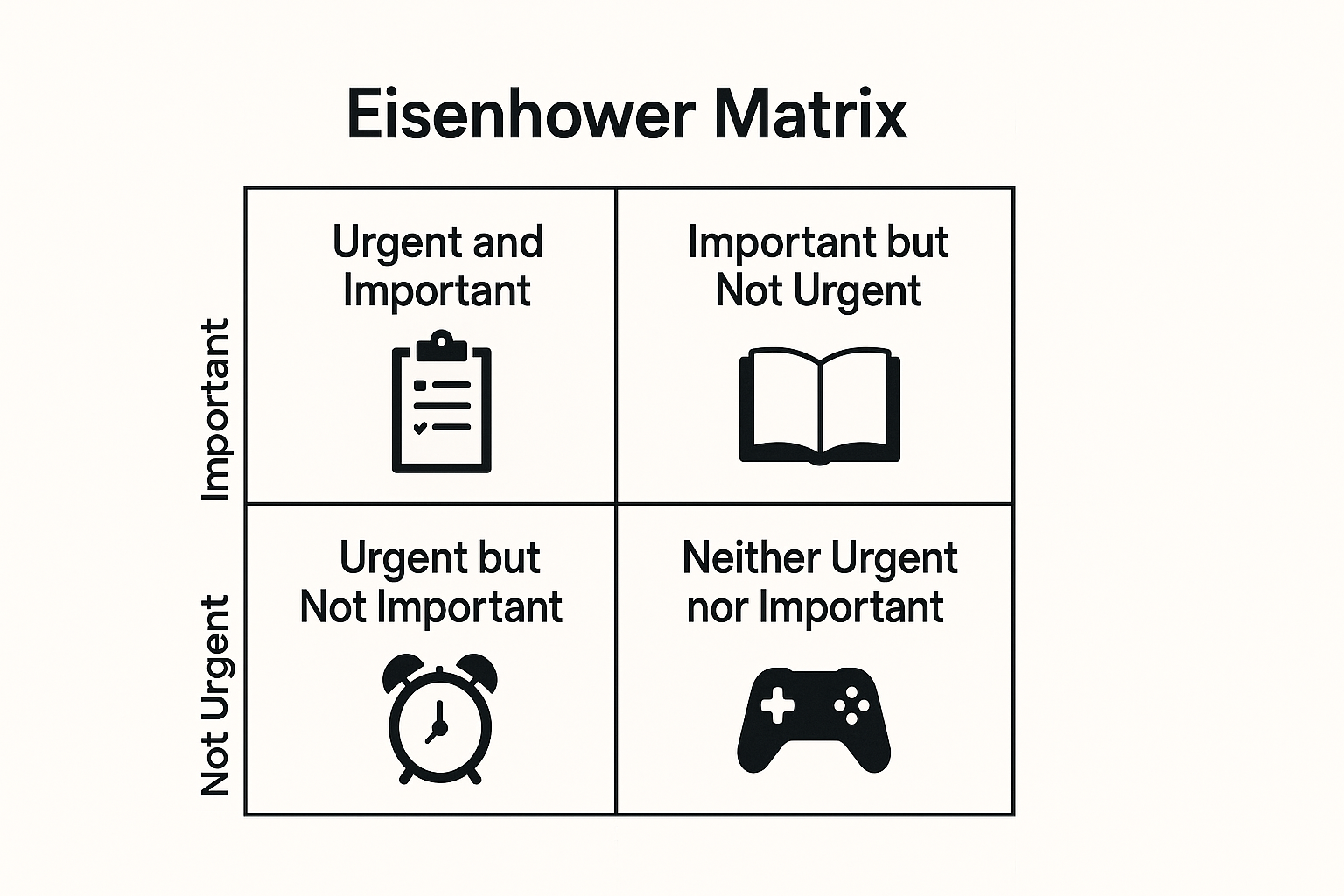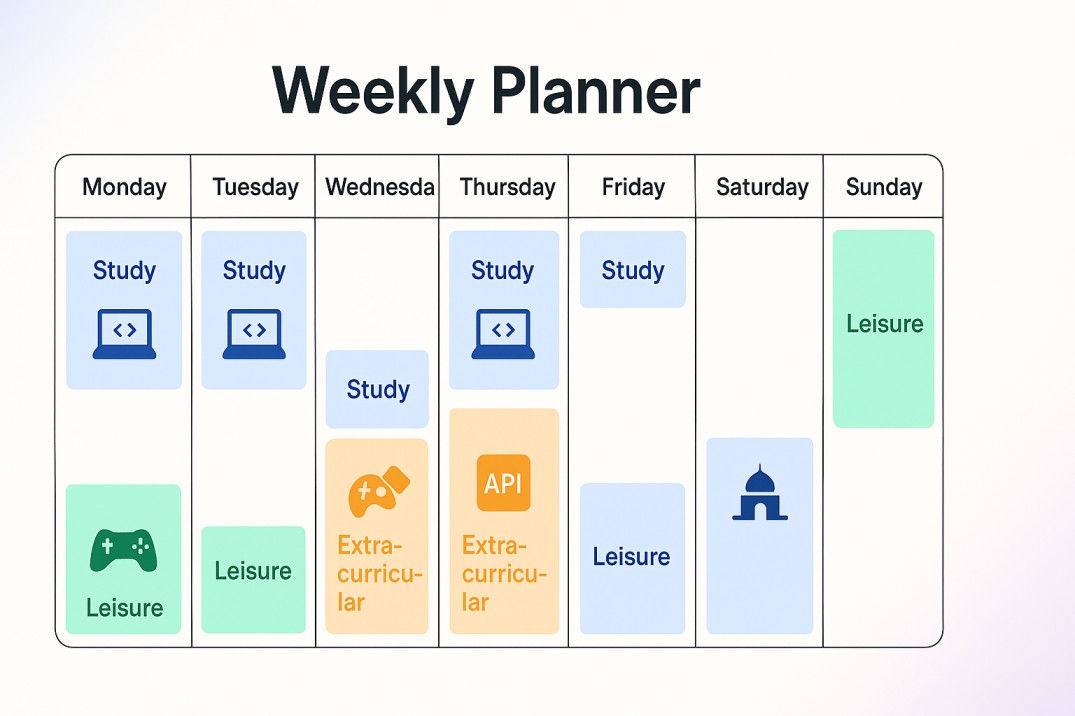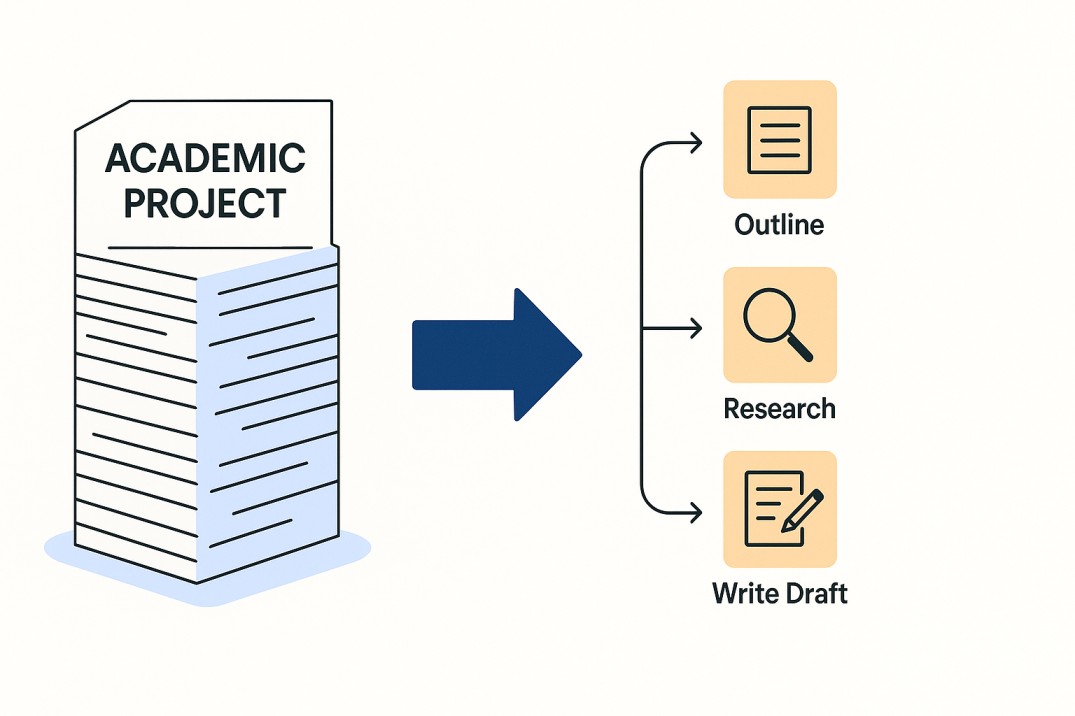Mastering Time Management for Students: Tips to Balance Academics, Extracurriculars, and Personal Life
Struggling to juggle school, extracurricular activities, and personal time? Discover practical, student-tested time management tips to achieve balance and success.

Let's face it—being a student can sometimes feel like a circus act. Between keeping up with assignments, attending extracurricular activities, and finding personal time, it's easy to feel overwhelmed. Believe me, I've been there! But what if I told you there's a way to manage your time better, without sacrificing your social life or sanity?
In this guide, I'll share my best tips on balancing academics, extracurriculars, and personal life effectively. Plus, you'll see how tools like StudyLab can help you turn your study sessions into efficient, interactive experiences.
Why Time Management Matters for Students
Good time management isn't just about getting more done—it's about reducing stress and making room for activities you genuinely enjoy. Research shows that students who practice effective time management are not only academically successful but also report greater well-being and less anxiety.
Common Misconceptions about Time Management
- "I don't have enough time." Actually, we all have the same 24 hours—it's about prioritizing.
- "I work better under pressure." Sure, deadlines can motivate, but chronic procrastination harms your mental health.
Practical Time Management Tips You Can Implement Today
1. Prioritize Your Tasks
Not all tasks are created equal. Use the Eisenhower Matrix method:
- Urgent and Important: Do these tasks immediately (e.g., studying for tomorrow's test).
- Important but Not Urgent: Schedule these tasks (e.g., long-term project planning).
- Urgent but Not Important: Delegate or limit these tasks (e.g., responding to non-critical texts).
- Neither Urgent nor Important: Minimize these tasks (e.g., excessive social media scrolling).
2. Create a Realistic Study Schedule
Map out your study sessions clearly, considering when you're most productive. For example, if you're an early bird, tackle challenging subjects in the morning.
Action Step: Block specific times in your calendar for studying each subject.
3. Break Down Big Tasks into Smaller Steps
Big assignments can be overwhelming. Break them into manageable tasks:
- Choose a topic
- Conduct initial research
- Draft an outline
- Write sections progressively
This approach prevents procrastination and builds momentum.
4. Use Effective Study Techniques
Swap passive reading for active recall and spaced repetition techniques—scientifically proven to enhance retention.
Personal Tip: I've turned notes into quizzes using StudyLab, transforming tedious revision into engaging practice sessions. The interactive flashcards are especially helpful for subjects like biology and history!
Balancing Extracurricular Activities
Extracurriculars are essential—they boost your resume and provide valuable social connections. However, they're time-consuming. Here’s how you can balance them effectively:
- Limit your involvement to activities that genuinely interest you.
- Communicate your schedule clearly with club leaders or coaches.
- Use downtime between activities efficiently (e.g., reviewing flashcards on your phone).
Example:
If you're part of a sports team, use travel time for reviewing key concepts on StudyLab’s mobile-friendly quizzes.
Maintaining Personal Time
Don't neglect your personal life—it's crucial for your mental health. Make personal time non-negotiable:
- Schedule time for hobbies, friends, and relaxation.
- Set boundaries and learn to say "no."
- Protect your sleep schedule—aim for at least 7-9 hours nightly.

Quick Reflection:
Ask yourself: What personal activities recharge you the most?
Common Time Management Mistakes to Avoid
- Overloading your schedule: Quality over quantity always.
- Ignoring breaks: Short breaks actually boost productivity.
- Multitasking: It reduces efficiency and increases errors. Focus on one task at a time.
How StudyLab Helps You Master Time Management
StudyLab transforms your traditional study methods into efficient, interactive learning experiences:
- Instant Quizzes: Quickly convert notes into quizzes to test yourself.
- Flashcards: Efficient for quick reviews and memory retention.
- Progress Tracking: Clearly see where you need improvement, focusing your study efforts effectively.
Personally, I find StudyLab invaluable for reinforcing challenging concepts, helping me manage my study sessions effectively.
Final Thoughts
Mastering time management isn't just beneficial for your grades—it's transformative for your entire student experience. By implementing these practical tips and leveraging StudyLab's interactive tools, you can balance academics, extracurriculars, and personal life seamlessly.


